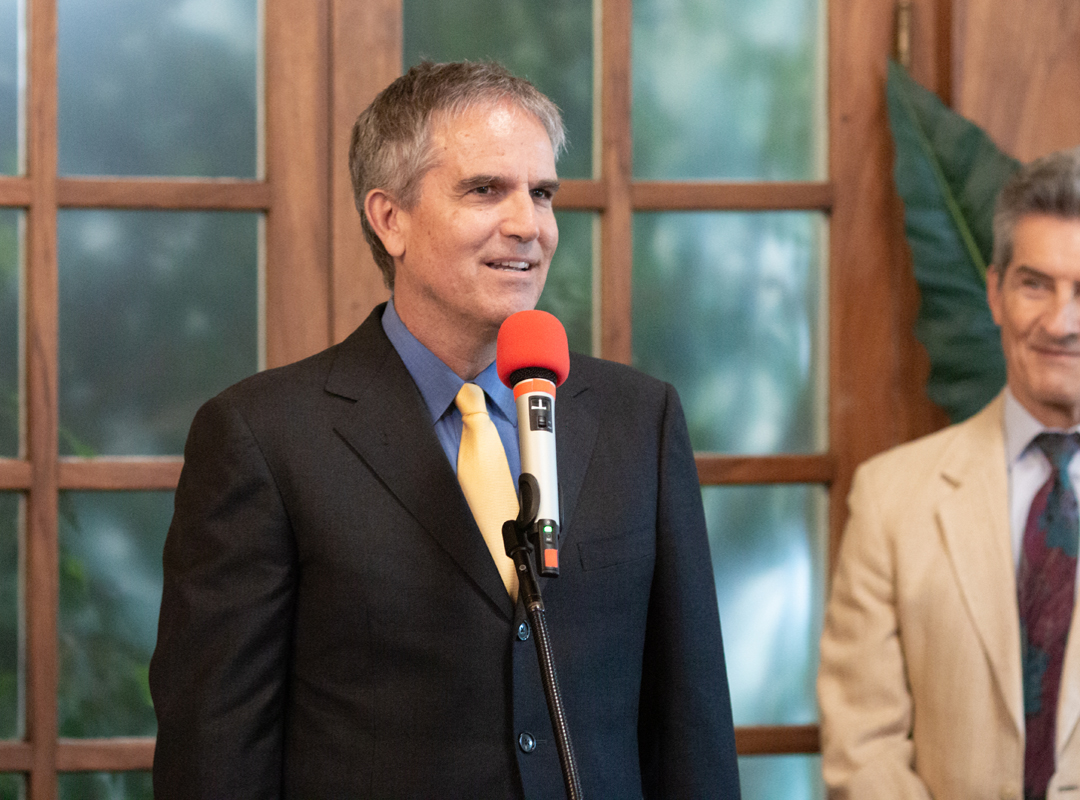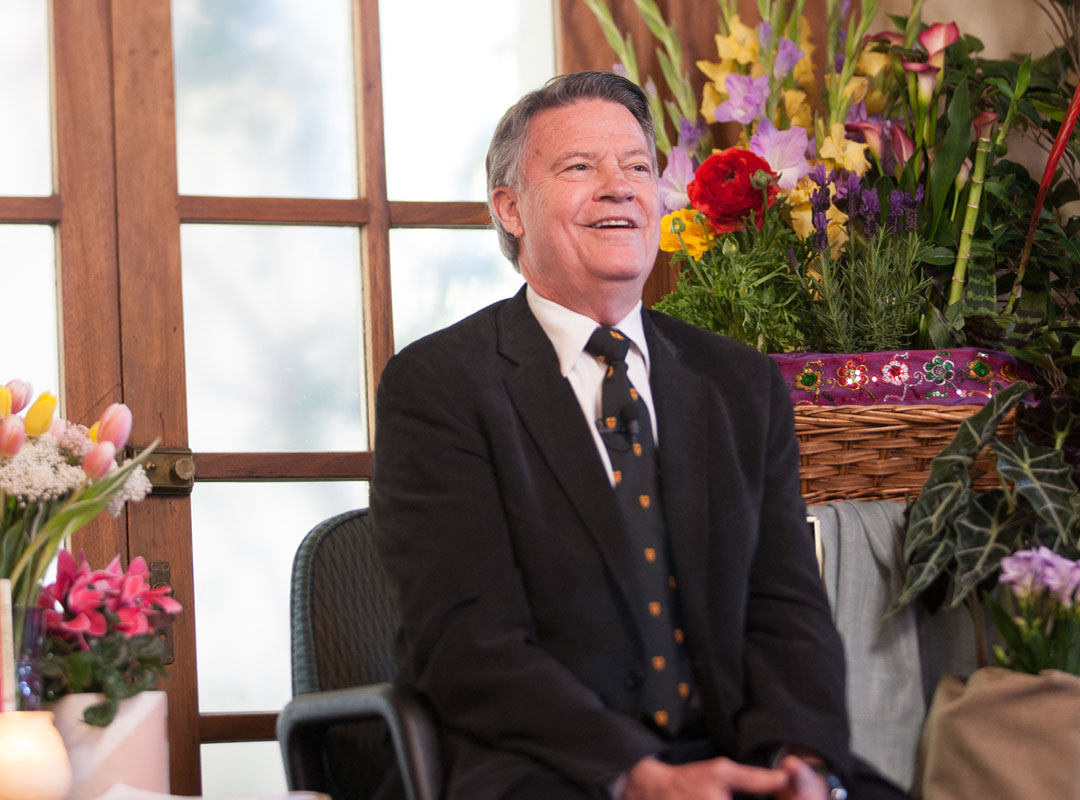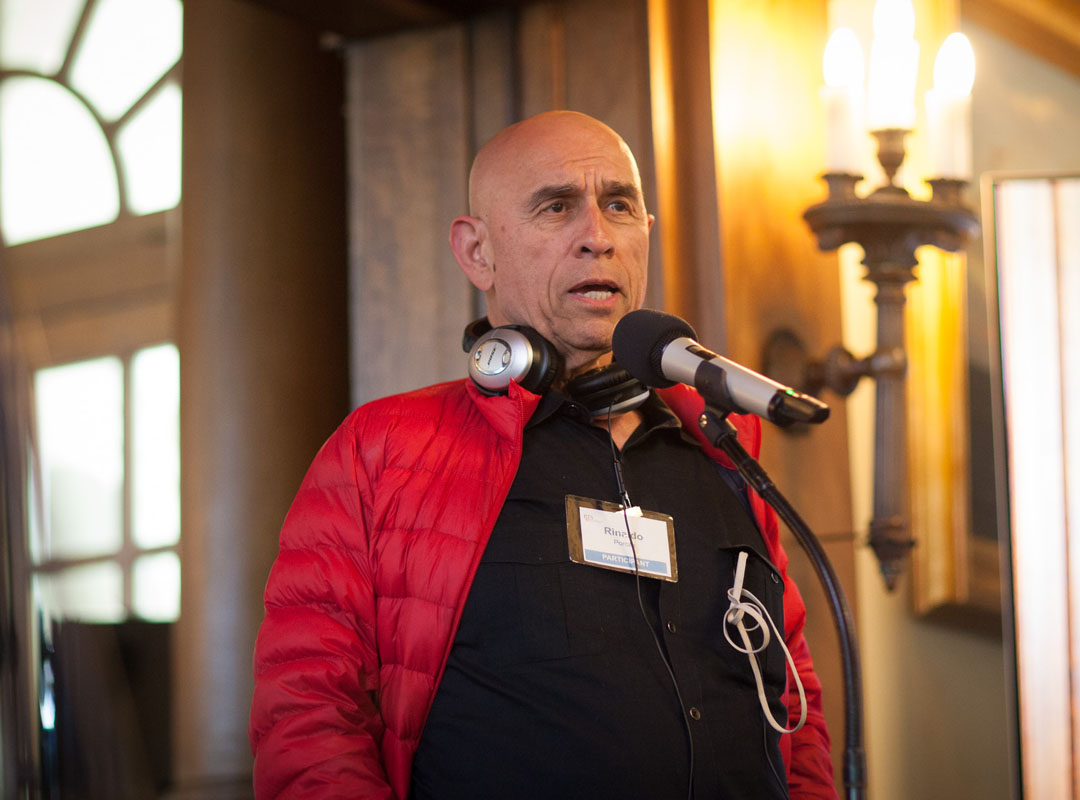Adapted from the forthcoming book also by Paul Hunting, Minister in MSIA: Shakespeare’s Revelation: His hidden guide to spiritual fulfilment.
Author’s Note: The revelations here will hopefully intrigue and inspire you. They may also confuse you or raise questions. Feel free to send any questions or comments to paul@horsejoy.com
At the end of a presentation I gave recently on symbols of the Sound Current in Shakespeare, someone asked, “How does this benefit me?”
I suggested she watch Al Pacino’s version of The Merchant of Venice and listen inwardly to what comes forward. This is a play that brings the Sound Current to life as God did Adam. As well as its mystical allusions it also reminds us what is available to us on earth when we choose grace versus the law.
Perhaps being open to the Sound enables us more fully to forgive. It gives us height, distance, perspective, empathy. The inner experience of grace requires no belief system—only faith enough to give peace a chance.
One way to understand Shakespeare’s symbolism is to see how he dramatizes the term “the waters” from Genesis interchangeably with “the Word” from John’s Gospel. Basically, it appears that Shakespeare is fully aware that the Sound Current, the Word, the waters, and the wind from heaven are all one and the same.
If you were to read the following two quotes together, it almost seems like Shakespeare and J-R are discussing the music of the spheres over a cup of sack in the highest realms of spirit.
“Be not afeared, the Isle is full of noises, sounds, and sweet airs, that give delight and hurt not: sometimes a thousand twangling instruments will hum about mine ears” —Caliban, The Tempest
“…that sound might be called the ten thousand violins…the most heavenly music you can hope to reach…” —John-Roger, The Sound Current.
Overthought-Underthought
The philosopher and poet Gerard Manley Hopkins draws a distinction between a poet’s “overthought” or explicit meaning, and his “underthought” or the meaning given by the progression of images and metaphors. But, he says, it is the “underthought” that is the real poetic meaning.
A simple paradigm shift makes Shakespeare’s “underthought” pop into view.
Instead of seeing his plays as about kings, dukes, and generals, deposing, usurping and slaying each other in the “outer world”, if we simply shift perceptions to see them as metaphors of the conflicts and battles of our “inner world,” Shakespeare’s real poetic (and spiritual) meaning becomes crystal clear.
Shakespeare is giving us his enlightened view of the key aspects of the scriptures beginning with Genesis, all the way through to Revelation. Basically, as extraordinary as it may sound, his plays afford different views on what seems to be the deposing of the soul of mankind by Lucifer, our resurrection through the Christ, total forgiveness and ascension of all at the end of time. Listen within for Spirit to tell you about the underthoughts here.
“Hell and Night must bring this monstrous birth to the world’s light.” —Iago, Othello (Shakespeare’s Genesis)
“O for a muse of fire, that would ascend the brightest heaven of invention” —Henry V, Chorus (Shakespeare’s Gospel)
To fully appreciate this gift, we must also apply the same paradigm shift to Genesis in the Bible. Clearly, this is what he’s doing. Instead of seeing the ancient biblical characters as “outer world” people, he employs the polarities of God-Satan, Adam-Eve, Cain-Abel to represent the archetypes of human consciousness of our “inner worlds.” This paradigm reveals his “underthought” and thus the core motivations of his entire cast of characters.
Polarities
Shakespeare characterises Adam-Eve as the male-female polarities of the image of God or soul, represented in the plays as, say, Romeo-Juliet, Lear-Cordelia, Ferdinand-Miranda, Bassanio-Portia, etc.
“So God created man in his own image, in the image of God created he him; male and female created he them.” —Genesis 1: 27
He characterises Cain-Abel as the two sides of the good-evil, right-wrong duality that comprises the dual false-selves of the human consciousness. Represented as, say, Falstaff-Hal, Iago-Othello, Shylock-Antonio, etc.
“But of the tree of the knowledge of good and evil, thou shalt not eat of it: for in the day that thou eatest thereof thou shalt surely die.” —Genesis 2:17
But eat of it we did and the child born of the union of God and Satan was called Cain-Abel.
Sound Current Symbolism
Before sharing a more detailed example of how he wondrously weaves his stories about the evolution of our souls out of biblical themes, I want to bring in some of the key biblical symbolism he uses to express the Sound Current. With verse, it’s important not to just translate the words, but to catch the spirit of it and let the understanding wash through.
Having said that, as I understand it, J-R has often talked about how “The Word” in John’s Gospel refers to the sound and name of God—the Sound Current. What I’ve realized is that in Genesis it is “the waters” that is used to represent the same thing—The Word. It’s tricky at first, but look for the deeper meaning in these two passages from Genesis. See “the waters” not as “water” but as the Word or Sound Current and it makes a whole different level of sense—especially in the Noah’s Ark allegory!
“And the earth was without form, and void; and darkness was upon the face of the deep. And the Spirit of God moved upon the face of the waters.” —Genesis 1:2
“And the waters prevailed, and were increased greatly upon the earth; and the ark went upon the face of the waters.” —Genesis 7:18
This verse from Revelation says it all and makes perfect sense of Shakespeare’s ubiquitous use of images and references to tempests: “And I heard a voice from heaven, as the voice of many waters, and as the voice of a great thunder” —Revelation 14:2
Poetic biblical metaphors of the Sound Current—the waters, the winds and rains, thunder, lightning, storms, as well as music and sweet sounds, etc.—are scattered through every single Shakespeare play I’ve looked at.
Once we tap in to the way Shakespeare is using biblical symbolism in his own unique way to craft images and allegories it opens up a whole new world of his cryptic teaching.
The Merchant of Venice —The Word Made Flesh
To me, The Merchant of Venice is his most sublime masterpiece. Consider the radical notion that all 37 plays are facets of the same “underthought”—The Tempest, aka “ The Wind From Heaven,” aka “The Sound Current.” The way he portrays this in The Merchant of Venice dazzles.
Take these two lines. Gospel of John, verse 1:
“In the beginning was the Word” (The Sound Current, the waters)
“And the Word was made flesh and dwelt among us.”
How might you craft a compelling drama bringing to life the essence of the meaning of these inscrutable lines of scripture? First imagine the very setting of the play itself—Venice. A city entirely built upon the waters that dwell amongst its citizens!
Next, add another line for emotional engagement, John, 15: 13.
“Greater love hath no man than this, that a man lay down his life for his friends.”
Now maybe we have the ingredients for quite a play.
Apart from a cautionary tale about the price we pay at a soul level for breaking agreements, could this be the basis of an intensely dramatic biblical allegory about Antonio, a wealthy merchant of Venice, who’s got all his money tied up in some precious cargo at sea? He has a nagging foreboding that something awful will befall him. But HE is not predisposed to looking within himself for higher spiritual guidance. Foolish man. Will your sandy foundations stand when the winds and rains beat upon your house?
His dearest, closest friend, young Bassanio, desperately needs to borrow thirty thousand ducats so he can woo the beautiful, wealthy Portia and hazard all he has to win her hand. Antonio loves Bassanio, a self-confessed prodigal, like his only begotten son. So great is his love that to help his friend, he asks to borrow three thousand ducats for three months from a usurer he utterly despises and upon whom he spits in the street—the Jew named Shylock.
Shylock is a notoriously successful usurer. He also has cause to despise Antonio even more than Antonio has to despise him. Shylock, sensing an opportunity to use the law to avenge the years of insult, degradation, and phlegm, agrees to the loan—on one condition: that if Antonio defaults on the repayment, he, Shylock, is entitled by legally binding bond to carve a pound of flesh from any part of Antonio’s body he so desires. Antonio seems prepared to lay down his life for his friend—but he has absolute confidence in the return of his ships with his merchandise within two months with his pound of flesh safe…so he gives his word to Shylock and thereby enters a legally binding contract.
Antonio’s word is now made flesh.
And great was the fall of it.
Of course it all goes horribly wrong for Antonio. It would have been a dull play otherwise.
Enter now the parable of the wise and foolish men who build their house upon rocks or sands.
“Therefore whosoever heareth these sayings of mine, and doeth them, I will liken him unto a wise man, which built his house upon a rock: And the rain descended, and the floods came, and the winds blew, and beat upon that house; and it fell not: for it was founded upon a rock.
“And every one that heareth these sayings of mine, and doeth them not, shall be likened unto a foolish man, which built his house upon the sand.
“And the rain descended, and the floods came, and the winds blew, and beat upon that house; and it fell: and great was the fall of it.” —Matthew 7:24-27
In the ministerial seminar Who are the False Prophets and Teachers J-R explains the symbolism of this parable.
“These symbolically mean the Holy Spirit…the Holy Spirit came and beat upon the house and it fell not…rock is referred to as the Christ…if I stay in the Christ, in the exampleship of our Lord Jesus Christ…”
This is the very symbolism Shakespeare uses for the tempests throughout.
Antonio was a foolish man. He not only did he give his word without due diligence, but he put his faith in the vicissitudes of nature. Shylock even warns him of his risk, but he ignores him. See how Shylock foreshadows the tempest that will cause Antonio’s fall—and alludes to the challenge of the Spirit.
“But ships are but boards, sailors but men: there be land-rats and water-rats, water-thieves and land-thieves, I mean pirates, and then there is the peril of waters, winds and rocks.”
And sure enough a tempest causes Antonio’s ships to founder on the rocks. His precious cargo is lost. He is broke. He cannot pay the debt. Shylock now wants his bond. His pound of flesh.
Antonio has to grovel. He pleads for his life. He is playing the Abel archetype. The good guy. He is the one we root for. He is the apparent victim. He looks like the hero, the main protagonist—but he’s not really good. He’s not only a fool, but a bigot, an anti-Semite. Shylock plays Cain, the counterpoint. He simply cannot understand the concept of mercy or forgiveness. He wants only revenge. He wants Antonio’s death. He wants his bond. He demands his pound of flesh.
By the time this goes to trial, Bassanio has now married Portia and returned a wealthy man. He offers to repay the loan ten times over to save his friend’s life. But Shylock doesn’t want the money. He wants his pound of flesh. He craves the law. He yearns for revenge. And the law seems to say he will get it.
Enter another verse from John, 1:17: “For the law was given by Moses, but grace and truth came by Jesus Christ.”
Enter Portia, cross-dressed as a young man, a doctor of law, with the wisdom of Solomon in her heart. She is the “soul archetype.” As the soul, she is not here to judge but to soar above the dilemma like a seagull and see things just as they are.
She hears the pleas and decides, “The Jew must be merciful.” (Shakespeare is using “Jew” not in a derogatory way, but as the archetype who follows the law of “an eye for an eye,” which is something we all have wired in.) Quite in character, the Jew retorts, “On what compulsion, must I? Tell me that.”
And tell him she does: she offers him a choice—to choose the law of an eye-for-an-eye, the law of karma—or to chose mercy, and forgiveness, the grace of God, the soul within us all. How do we know this? In one of his most moving speeches, Shakespeare via Portia tells us: “The quality of mercy is not strain’d, it droppeth as the gentle rain from heaven upon the place beneath. It is twice blest: It blesseth him that gives and him that takes…it is an attribute to God himself: and earthly power doth then show likest God’s when mercy seasons justice…”
Shylock, however, is not moved. He demands the law. He wants revenge. He wants justice. Portia warns him, “That in the course of justice none of us should see salvation.” But the Cain-self, Shylock, is lost to his soul. “My deeds upon my head! I crave the law, the penalty and forfeit of my bond.”
What befalls Shylock is inevitable It would have been a dull play had it not. As do we all when we feel we cannot forgive, he chooses the law. He demands his bond. He demands his right to his bond and his right to the judgment of law. And as he strops his razor to carve his pound of flesh, Portia halts him and begs him consider the true nature of justice, “For, as thou urgest justice, be assur’d thou shalt have justice, more than thou desir’st.”
Having committed himself to the law, he is now required by that same law to exact said exact pound of flesh. That’s exactly one pound, no more, no less…and on pain of forfeiture of all his goods and land, may not one drop of blood be spilled. Realising he is thwarted, Shylock now agrees to take the earlier offer of thrice times the bond. But it’s too late. He has committed himself to choosing the law. And all choices have consequences.
Enter another verse, this time from Matthew 5, 18: “For verily I say unto you, till heaven and earth pass, one jot or one tittle shall in no wise pass from the law, till all be fulfilled.” (Jot and tittle are the smallest possible things one can imagine.)
The same spiritual principle in Portia’s solemn words sounds like, “Therefore prepare thee to cut off the flesh. Shed thou no blood, nor cut thou less nor more than a just pound—be it so much as makes it light or heavy in the substance, or the division of the twentieth part of one poor scruple; nay, if the scale do turn but in the estimation of a hair (shy of a lock) thou diest, and all thy goods are confiscate.”
As it does for all of us when we refuse to offer mercy, our judgement comes right back upon our heads. Shylock knows the demands of the law are impossible to fulfill. Despite being right and justified in terms of the letter of the law, through mercilessness he’s lost everything. His revenge and his bond are gone. He tries to wriggle out of the court. But Portia stops him and informs him the law (that he so craved) is now going to take another bite out his flesh. He’s now found guilty of attempted murder and thus according to the law of Venice he insisted upon using, half his fortune goes to Antonio, the other half to the state, and his very life rests upon the mercy of the presiding Duke.
Ultimately, his life is spared but he’s left penniless. His daughter has also eloped taking all his hoard of gold. He has nothing left for his pains—nothing except his precious law, his insatiable craving for revenge and justice, and, oh yes —his new religion!
Antonio, true to form as the Abel, gets his revenge by saving Shylock’s immortal soul. He insists Shylock renounce his Jewish faith and become a Christian—the worst punishment possible for a broken man who has already lost everything he holds dear. The key lesson for me is found in one of Shakespeare’s cunningly crafted names: Portia, as the soul archetype. Under grace if we do our portion the Christ will fulfill the balance of that which is required by the law.
Shakespeare doesn’t stop there with his teachings, but I must. I want to end on a thrilling passage of Sound Current poetry that certainly implies new information for me: that when Jesus restored our rightful kingdom and our passage into Spirit, did he also unseal our inner ears to receive the Sound that had been lost? This is Antonio’s friend Lorenzo courting Shylock’s daughter Jessica, while entreating us all to awaken to the sweet song of the soul and let it draw us home to God.
“How sweet the moonlight sleeps upon this bank! Here will we sit and let the sounds of music creep in our ears. Soft stillness and the night become the touches of sweet harmony. Sit, Jessica. Look how the floor of heaven is thick inlaid with patens of bright gold. There’s not the smallest orb which thou behold’st but in his motion like an angel sings, still choiring to the young-eyed cherubins.
“Such harmony is in immortal souls, but whilst this muddy vesture of decay doth grossly close it in, we cannot hear it. Come ho, and wake Diana with a hymn! With sweetest touches pierce your mistress’ ear, and draw her home with music.”


















Fascinating. Thanks so much for this Paul. Interestingly enough, I have recently acquired the Al Pacino version of The Merchant of Venice! I shall watch with my heart, and opened h(ear)ing … x
Beautiful – thank you!
Never could really enjoy Shakespeare ’til now. Thank you for revealing his spiritual “underthoughts.”